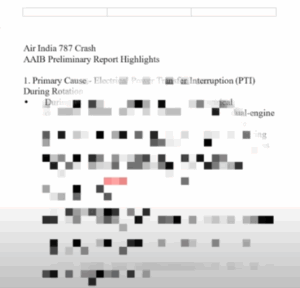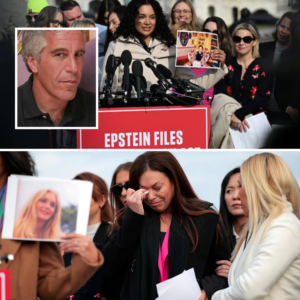On July 20, 2025, an anonymous email surfaced online, claiming to reveal a deliberate cover-up surrounding the true cause of the catastrophic crash of Air India Flight 171. The Boeing 787-8 Dreamliner, en route from Ahmedabad to London Gatwick, crashed just 32 seconds after takeoff on June 12, 2025, killing 241 of the 242 people on board and 19 on the ground. The email, widely circulated on social media and aviation forums, alleges that critical information about the crash’s cause has been suppressed to protect corporate and governmental interests, sparking renewed controversy and public outcry. While the claims remain unverified, they have intensified scrutiny of the ongoing investigation led by India’s Aircraft Accident Investigation Bureau (AAIB).

The Crash and Initial Findings
Air India Flight 171 departed Ahmedabad’s Sardar Vallabhbhai Patel International Airport at 13:38 IST, carrying 230 passengers and 12 crew members. The flight reached a maximum altitude of 625 feet before both engines lost thrust, leading to a crash into the hostel block of B.J. Medical College, 1.7 kilometers from the runway. The sole survivor, Vishwaskumar Ramesh, a 40-year-old British national of Indian origin, sustained non-life-threatening injuries. The preliminary report, released by the AAIB on July 12, 2025, revealed that the fuel control switches moved from the “RUN” to “CUTOFF” position seconds after takeoff, starving the engines of fuel. Cockpit voice recordings captured one pilot asking, “Why did you cut off?” with the other responding, “I didn’t do it.” The report did not identify which pilot spoke or provide a full transcript, leaving many questions unanswered.
The Anonymous Email
The anonymous email, purportedly sent from an encrypted server, claims that the AAIB’s preliminary report deliberately omits critical details to shield Air India, its parent company Tata Group, Boeing, and Indian regulators. The email alleges that the fuel control switches’ movement was not a pilot error but resulted from a malfunction in the throttle control module, a component previously flagged in a 2018 U.S. Federal Aviation Administration (FAA) Special Airworthiness Information Bulletin (SAIB). The SAIB noted that some Boeing 737 fuel control switches had disengaged locking mechanisms, a design also used in the Boeing 787-8. Air India did not conduct the recommended inspections, as they were not mandatory.

The email further claims that maintenance records, which could confirm whether the throttle control module on the crashed aircraft (VT-ANB) was faulty, have been withheld from investigators. It accuses the AAIB of downplaying the FAA’s advisory to avoid implicating Boeing or Air India’s maintenance practices. Additionally, the email suggests that pressure from the Indian government and Tata Group influenced the investigation to favor a narrative of human error, as blaming the pilots—Captain Sumeet Sabharwal and First Officer Clive Kunder, both deceased—would deflect liability from corporate entities.
Reactions and Controversy
The email’s emergence has fueled widespread speculation, with victims’ families, pilot unions, and aviation experts demanding transparency. Ameen Siddiqui, a relative of deceased passengers, called the preliminary report a “cover-up” designed to protect Air India and Boeing, echoing sentiments in the email. The Federation of Indian Pilots (FIP) and the Indian Commercial Pilots Association (ICPA) have criticized the report’s reliance on selective cockpit recordings and the exclusion of pilot representatives from the investigation. The ICPA labeled suggestions of pilot suicide as “reckless and unfounded,” arguing that no evidence supports such claims.
The U.S. National Transportation Safety Board (NTSB), assisting in the investigation, called Western media reports blaming the captain “premature and speculative,” urging the public to await the AAIB’s final findings. The AAIB itself issued a statement condemning “irresponsible” reporting and emphasized that the investigation remains ongoing, with wreckage analysis and component inspections still incomplete.
Implications and Unanswered Questions
The anonymous email has raised serious questions about the integrity of the investigation. Aviation veteran Shakti Lumba, former head of operations at IndiGo, criticized the AAIB for giving a “clean chit” to Boeing and General Electric in the preliminary report, arguing that it undermines the investigation’s credibility. The email’s mention of the FAA’s 2018 advisory has drawn attention to potential design flaws in the Boeing 787’s fuel control system, which could have broader implications for the global fleet.

However, skepticism surrounds the email’s authenticity. Some experts argue it could be a hoax or an attempt to manipulate public perception, as no concrete evidence has been provided to substantiate the claims. The lack of a full cockpit voice recorder transcript and detailed maintenance records continues to hinder clarity. The AAIB has not commented on the email directly, but its call for avoiding speculative narratives suggests an effort to maintain control over the investigation’s narrative.
Moving Forward
The crash of Air India Flight 171 remains one of India’s deadliest aviation disasters, and the anonymous email has deepened public distrust. Families of the victims, such as Siddiqui, have rejected Air India’s compensation offers and are pursuing legal action against the airline and Boeing. The Tata Group’s establishment of the AI-171 Memorial and Welfare Trust, offering ₹10 million per deceased passenger and support for rebuilding damaged infrastructure, has done little to quell demands for accountability.
As the investigation progresses, the AAIB faces mounting pressure to release a comprehensive final report, expected within a year under international protocols. Whether the anonymous email’s claims are validated or debunked, its impact is undeniable, reigniting debates about aviation safety, corporate responsibility, and transparency in India’s rapidly growing aviation sector. Until the full truth emerges, the tragedy of Flight 171 continues to haunt the public, with 260 lives lost and a single survivor left to bear witness to an unresolved mystery.




